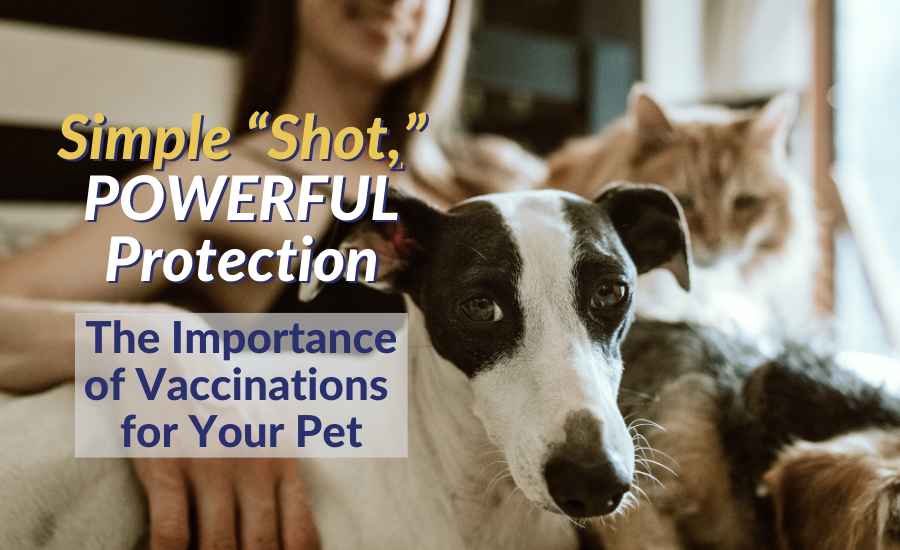Is your pet up to date on their vaccines? Vaccines are essential for protecting your pet against dangerous infectious diseases. At Minnesota Veterinary Hospital, we believe your pet’s health should always be a top priority and are here to ensure your pet is protected. August is National Immunization Awareness Month and the perfect opportunity to learn more about the importance of vaccinating your pet.
Here’s what you need to know.
How Vaccines Protect Your Pet
Throughout your pet’s life, they will be exposed to various diseases that can seriously affect their long-term health. Cats and dogs are born without a fully functioning immune system and rely on antibodies from their’s mother’s milk to protect them during their first few weeks of life.
Antibodies help the body detect disease and mount an appropriate immune response. Over time, the protection from maternal antibodies fades and increases your pet’s risk of getting sick. Luckily, vaccines are designed to boost your pet’s immune system and provide powerful protection against disease.
Getting Your Pet Vaccinated
Your pet should receive their first round of vaccines when they are around 6 to 8 weeks old. This helps prime the immune system and provides some protection as their maternal antibodies decline. After this initial dose, your pet will need additional boosters every few weeks until they are 14-16 weeks old. These boosters provide long-lasting protection and further strengthen the immune system. Keep in mind that the frequency of future vaccines can vary. Some vaccines protect for three years, while others must be administered annually.
Understanding Core and Non-Core Vaccines
Knowing which vaccines your pet needs can be confusing. Some vaccines are recommended for all pets, while others may only be necessary for special circumstances. The vaccines recommended for all pets are considered core vaccines, while the others are non-core.
Below you can find a list of vaccines we recommend for both dogs and cats.
Dogs Core Vaccines
- Rabies
- Distemper Combo: This vaccine includes protection against Canine Adenovirus Type 1 and 2, Canine Distemper Virus, and Canine Parvovirus.
Dog Non-Core Vaccines
- Lyme Disease
- Leptospirosis
- Bordetella
Cat Core Vaccines
- Rabies
- Upper Respiratory combo: This vaccine includes protection against Feline Panleukopenia, Feline Viral Rhinotracheitis, and Feline Calicivirus
Cat Non-Core Vaccines
- Feline Leukemia Virus
- Feline Infectious Peritonitis
- Feline Immunodeficiency
During your pet’s vaccine appointment, we will discuss your pet’s health, lifestyle, and vaccination history. This information is important for understanding your pet’s disease risk and which non-core vaccines are necessary.
If you would like to learn more about these vaccines and the diseases they prevent, check out our vaccination page.
Final Thoughts
Vaccines are a simple way to provide powerful protection for your furry friend. Remember to keep your pet’s vaccines up to date and let us know about any changes to their lifestyle or environment.
If you have questions about your pet’s vaccine status or would like to schedule an appointment, please give us a call at 651-484-3331. We look forward to hearing from you and keeping your pets happy and healthy for years to come.
Image credit: Pexels

